Visiting Khmer pagodas is not only a serene getaway, but also a fascinating way to peek into the lives of a Khmer Buddhist, a solitary culture at the heart of the Mekong delta.
Among these pagodas, Chen Kieu (also known as SroLoun pagoda) is one with the most unique architecture.
Located 10km from SocTrang city, the pagoda is on the way from SocTrang to Bac Lieu province, about 230 km from Ho Chi Minh City.
According to Trinh Tien, a member of the pagoda’s management board, the pagoda was erected in 1815 in a spacious area with lots of trees. It was damaged by war but was renovated in 1969. During the rebuilding, due to a lack of construction materials, monks came up with the inspiration of calling for donations of bowls and plates from local people for use in decorating the main building.
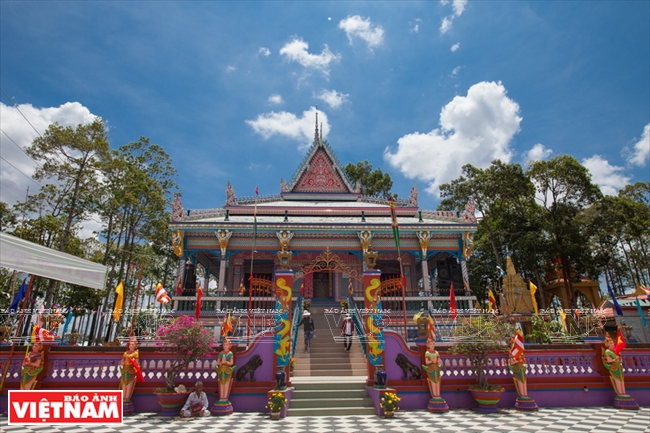
Chen Kieu or Sa Lon pagoda is located in Da Tam commune, around 12 km from Soc Trang city.
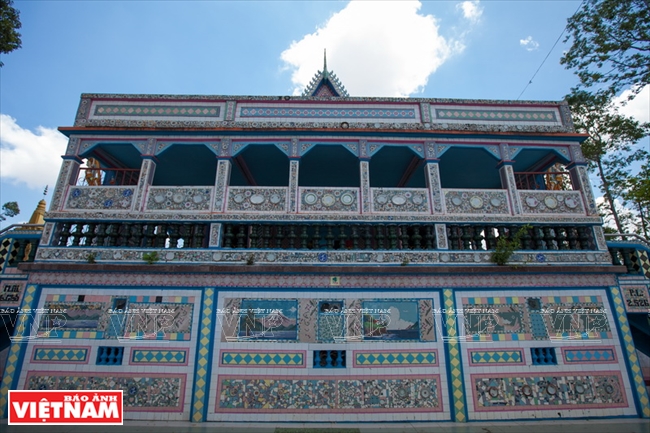
The pagoda is decorated with colourful plates and bowls.
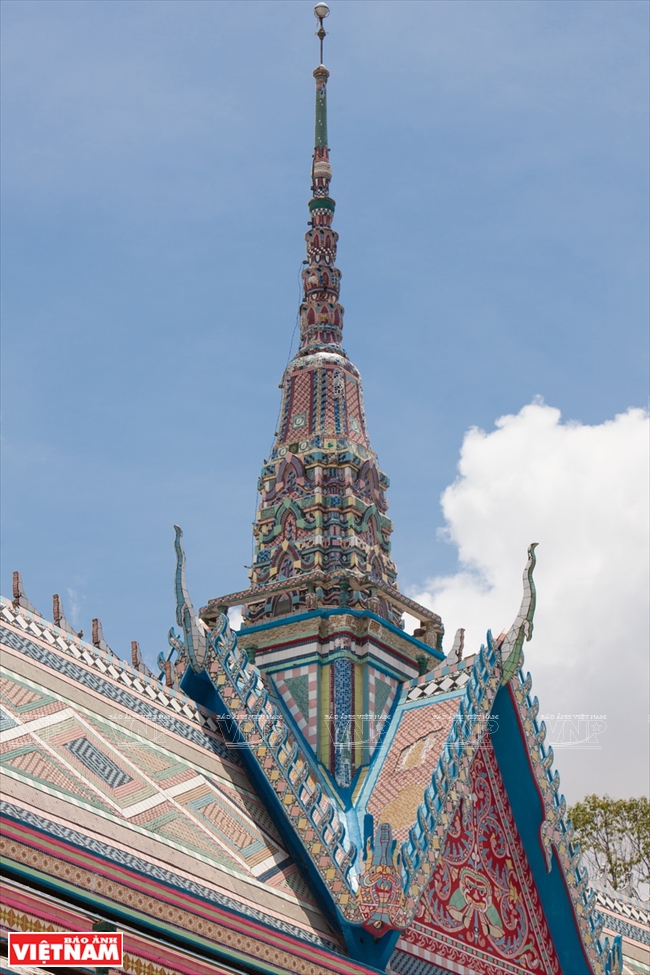
The pagoda's top roof.
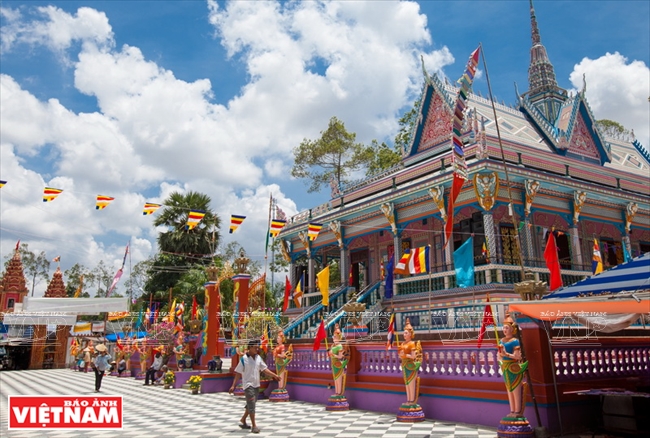
Bowls and plates combined with Japanese tiles add bright colours to the pagoda.
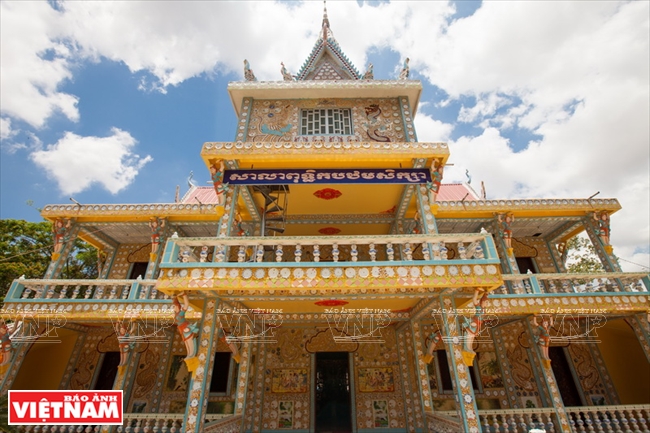
Walls are decorated with plates.
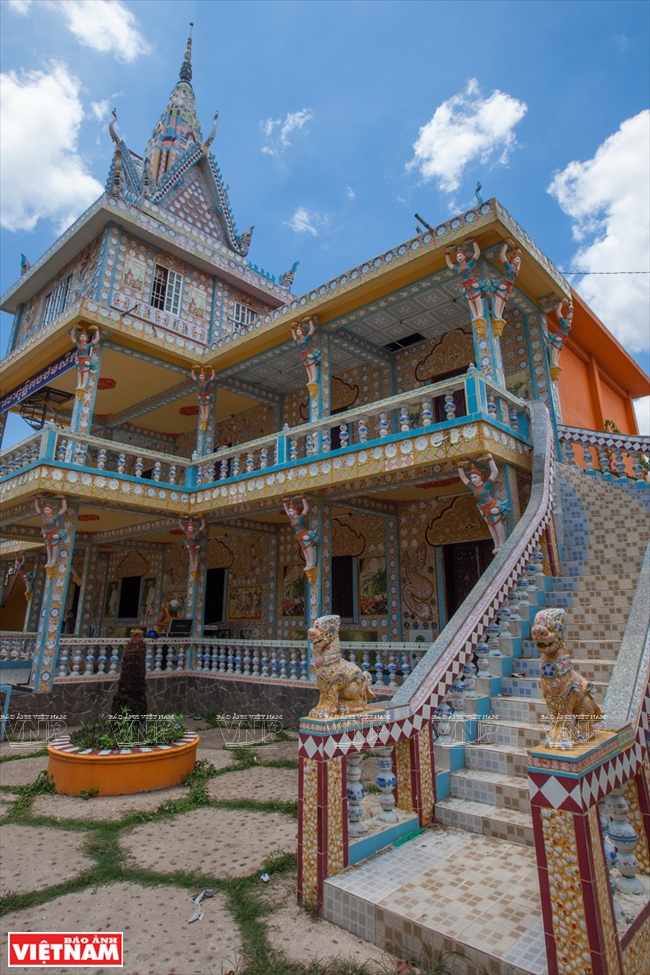
Over 40 years after construction, the colours of the bowls and plates remain beautiful.
.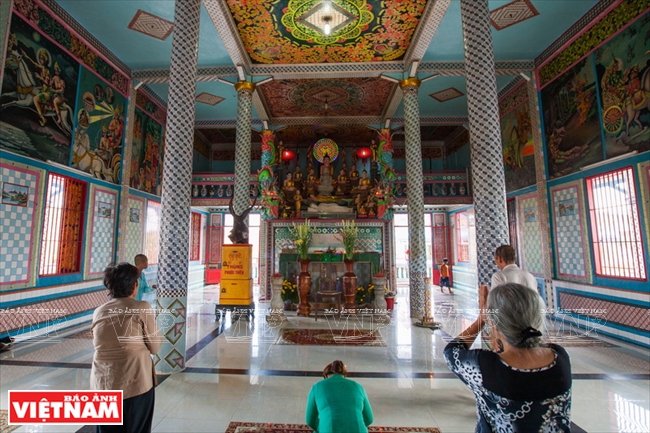
The main part of the pagoda.
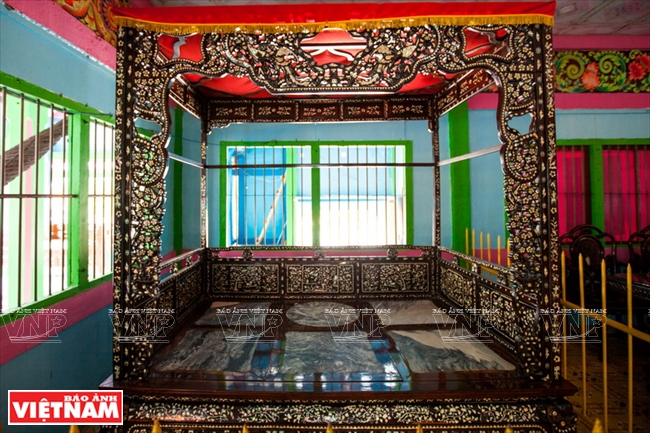
A bed donated by the family of Tran Trinh Huy, known as Cong Tu Bac Lieu,
the son of one of the richest families in Bac Lieu province. |
The walls and fences were most densely built with bowls and plates. Together with the blue Japanese tiles, the pagoda is a group of motley colours. The idea of using bowls and plates was not only an economical method, but represents the solidarity of Khmer community.
The pagoda was built with a spiritual significance. The edges of each roof are decorated with patterns and traditional statues of Khmer culture to inspire peace of mind and salvation. The curvy design of the top roof also bears symbols of freedom. The three alternate roofs resemble a big carpet with different colours.
The inner sanctum of the pagoda has 16 pillars carved with images of the legends of Khmer culture, and the two walls are carved with pictures telling the story of Buddha from the day he was born till the time he reached the peak of the way.
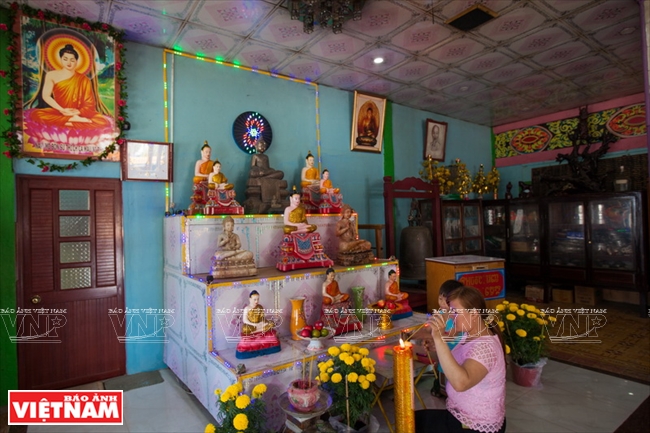
The pagoda has small Buddhist statues.
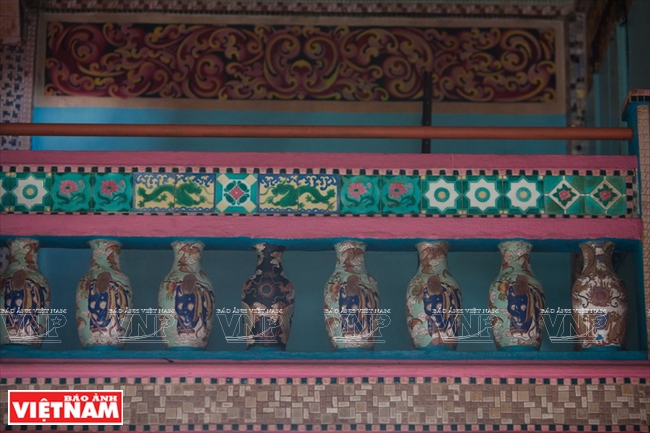
Ceramic pots are used for decoration.
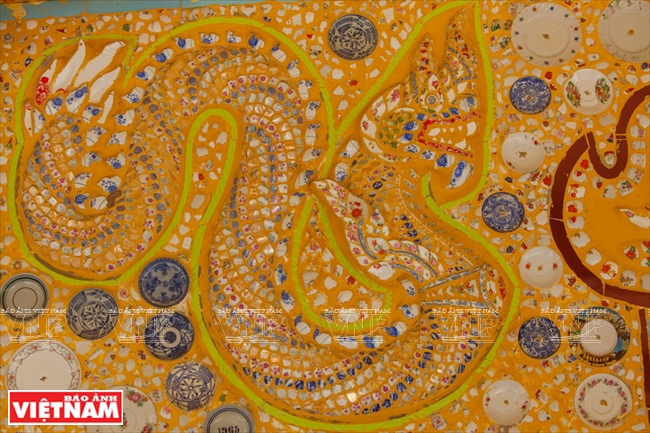
A picture creatively made from bowls and plates of diffrent sizes .
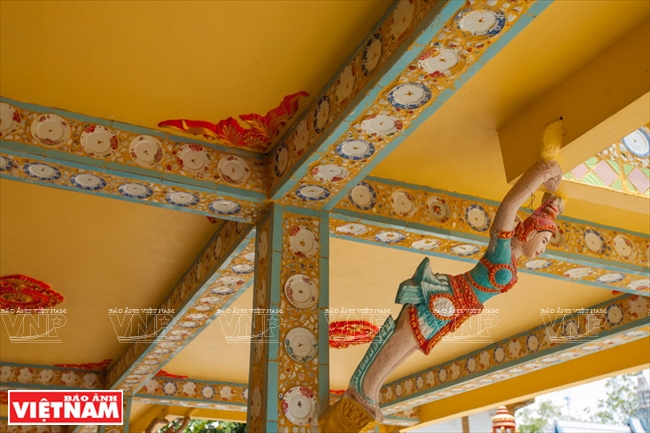
Plates are also used to decorate pillars inside the pagoda.
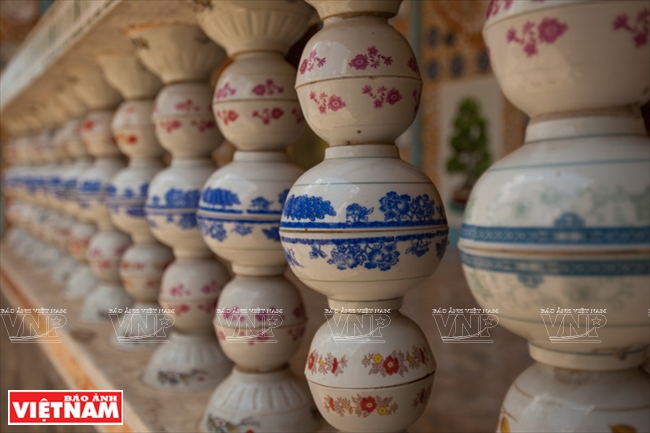
Bowls are made into small pillars.
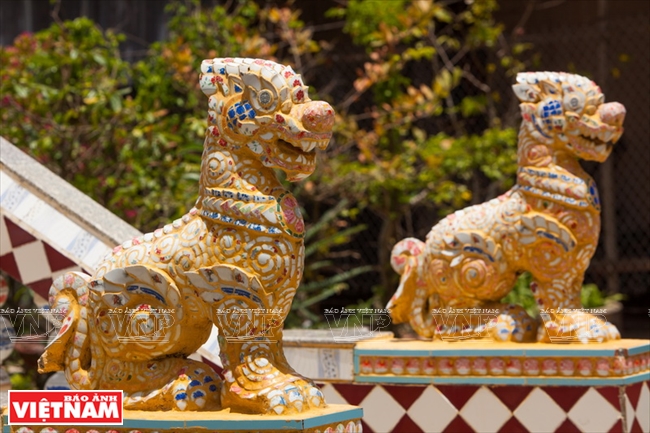
Sacred animals are carved and decorated with ceramic pieces.
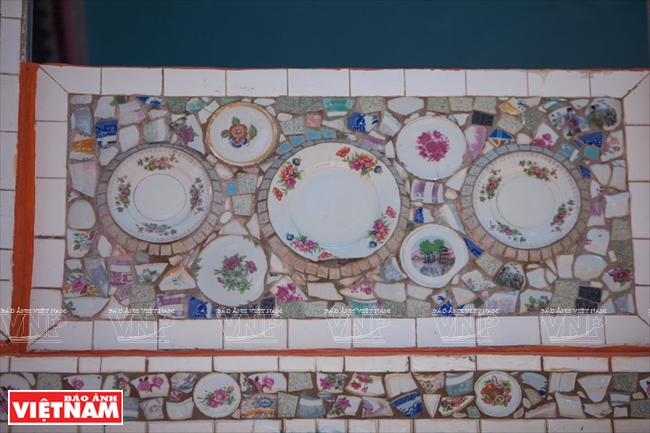
A wall inside the pagoda.
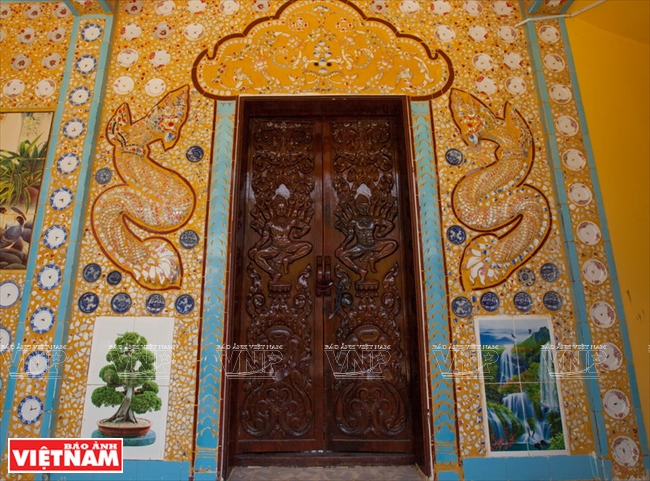
Beautifully decorated entrance door.
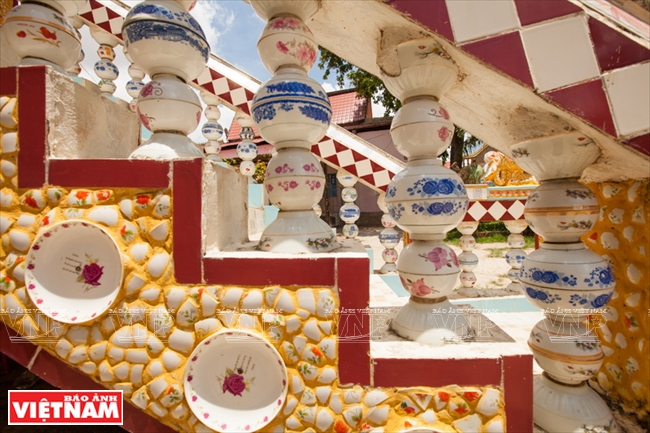
Original stairs of the pagoda. |
Chen Kieu pagoda is also carved with beautiful patterns of the image of Haloman, the Goddess of hawks and lion statues in an area of green, ancient trees contributing to the tranquil beauty of the pagoda. The pagoda’s altar has 20 Buddhist statues in different positions and its library has a collection of Buddhist scriptures written on palm leaves, some new and some dating back hundreds of years.
In the residence of the pagoda there is a set of chairs and a bed made from ebony, donated by the family of Tran Trinh Huy, commonly known as Cong Tu Bac Lieu, son of one of the richest families in Bac Lieu province in the first years of the 20th century.
Story: Son Nghia Photos: Nguyen Luan